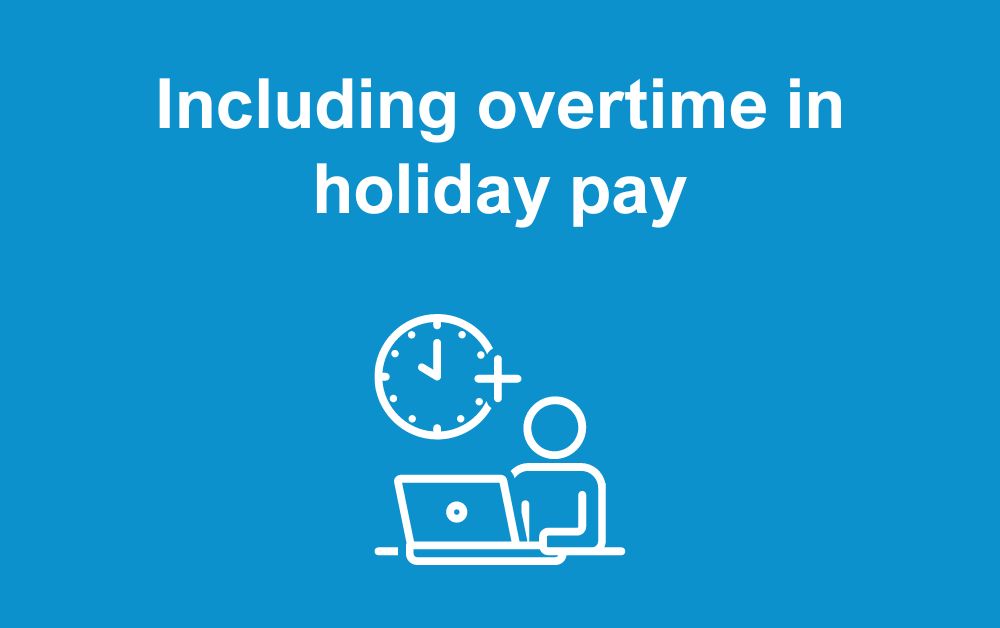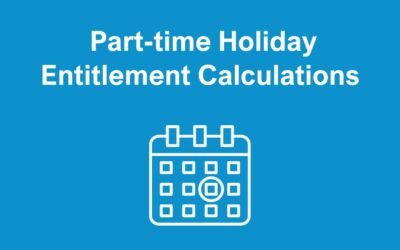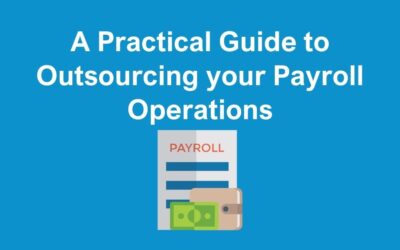Overtime and Holiday Pay: Does overtime have to be included in holiday pay? This question is something that we’ve been asked a lot recently. As an employer, it’s crucial that you get it right when calculating holiday pay. The statutory minimum holiday entitlement is 5.6 weeks of paid holiday per year. Part-time employees are also entitled to a minimum of 5.6 weeks annual leave. However, this is in proportion to the hours they work. It’s important to remember that the way holiday pay is calculated for part-year and irregular hours workers will change from April 2024. This will now be calculated by working out 12.07% of the hours worked.
There has been some question about whether overtime and commission should be included when calculating your employees’ pay for time off. In this article, we will answer this once and for all.
You may also want to check our article about Leap Year Holiday Entitlements.
Types of Overtime
There are three types of overtime recognised: voluntary, compulsory, and non-guaranteed. In voluntary overtime, employees are not obligated to accept additional working hours offered by employers. Compulsory overtime is where employees are required to work additional hours as per their employment contract. Non-guaranteed overtime is where employers are not obliged to offer extra hours, but employees must accept them if offered.
What type of overtime should be included when calculating holiday pay
The Employment Appeal Tribunal (EAT) has provided clear guidance on what kinds of overtime should be included in holiday pay calculations:
- Regular Voluntary Overtime: The key ruling from the EAT states that regular voluntary overtime payment must be included when calculating holiday pay. This ruling came from the case of Dudley Metropolitan Borough Council v Willetts and others in 2017. The principle established here is that holiday pay should reflect ‘normal remuneration’, meaning what the employee typically earns, including regular overtime, even if it’s voluntary.
- Compulsory Overtime: Overtime hours that are compulsory, as outlined in the employee’s contract, should also be included in holiday pay calculations. This is because it forms a part of the employee’s normal pay.
- Non-Guaranteed Overtime: This type of overtime is where the employer is not obligated to offer overtime but the employee must accept it when offered. If this form of overtime is regular, it should be considered for holiday pay calculation.
Legislation on Overtime and Holiday Pay
In 2020, the UK Supreme Court ruled that employers must include regular overtime pay in their calculation of holiday pay. Therefore, if an employee regularly works more than their contracted hours, this should be factored into their holiday pay calculation. This will ensure that they are receiving the correct amount of pay during their annual leave.
There have been several court cases that have clarified the law around this. The main examples are the cases of Bear Scotland Ltd v Fulton and others (2014) and Lock v British Gas Trading Ltd (2016). These cases confirmed that employers must include additional hours worked when calculating holiday pay. It also clarified that commission payments should also be included in certain circumstances.
The ruling on overtime and holiday pay, which was updated in 2022, has brought significant changes in how employers calculate and pay their employees for overtime and holiday pay.
As per the new ruling implemented in April 2022, employers must now include overtime work when calculating holiday pay for their employees. Previously, holiday pay for shift and part-time workers was based on their last 12 weeks of pay. The new ruling has extended this reference period to the previous 52 weeks.
Employers shouldn’t just consider regular overtime work when calculating holiday pay. You should also look at commissions, bonuses, and other allowances as per employment terms. The idea is to ensure that holiday pay reflects an employee’s normal remuneration.
You should ensure that you are familiar with the relevant legislation and case law related to overtime and holiday pay, and that you are in compliance with all applicable regulations. Failure to comply with these regulations can result in legal action being taken against you.
How to calculate holiday pay that includes overtime
Holiday pay should be calculated on the basis of the employee’s normal pay. Where an employee normally works more hours than contracted or normally receives commission etc. this should be included in the calculation of their holiday pay.
One of the main things we learned from the ruling in 2020 is how to calculate holiday pay that includes overtime. You should calculate your employees holiday pay by working out the average earnings over the last 52 weeks. If they haven’t worked a full 52 weeks yet, base this on the average of weeks worked so far.
Add up the total pay received over the 52-week reference period. This total should include regular components of pay such as basic pay, regular voluntary overtime, compulsory overtime, and any non-guaranteed overtime if it’s a regular part of the pay. Exclude any weeks where no pay was received.
To find the average weekly pay, divide the total pay by 52 (or the number of weeks in your reference period if less than 52). This figure is the average weekly pay that should be used to calculate holiday pay.
Legislation is always evolving. In addition, it’s important that you are familiar with the relevant legislation and case law related to this topic. We can help you make sure you’re in compliance with all applicable regulations.
Claims for Underpayment
Employees can bring an employment tribunal claim within three months of underpayment for overtime holiday pay. For backdated claims, there’s a two-year limit for creating a chain of underpayments.
These changes are aimed at ensuring fair compensation for overtime and holiday periods, reflecting the employee’s normal pay and preventing any discouragement from taking entitled leave.
Are there exceptions to including overtime in holiday pay?
Yes, there are exceptions to including overtime in holiday pay calculations. These exceptions are based on the nature and regularity of the overtime. Overtime that is genuinely occasional and infrequent does not need to be included in holiday pay calculations. This is because such overtime does not form part of the employee’s ‘normal remuneration’.
Employers should approach each case on its merits, considering the pattern of work and whether the overtime can genuinely be considered part of the employee’s normal pay. It’s advisable to seek legal or HR advice in ambiguous cases to ensure compliance with current employment law and rulings.
Contact Us
Employers should consider the needs of their employees, their business requirements, and the legal and regulatory frameworks in their jurisdiction when calculating annual leave and overtime. Additionally, employers should communicate clearly with their employees about their policies on overtime pay and holiday pay, to avoid any misunderstandings or conflicts in the future.
Top 5 mistakes when calculating holiday pay
The 5 main mistakes are:
- Calculation errors such as not including overtime payments or bonuses.
- Making errors regarding part – time working hours such as incorrectly prorating.
- Statutory leave and extra contractual leave are two different forms of leave, but sometimes people can get mixed up between the two.
- Legislation can change on a regular basis, it is important you are aware of the latest legislation to avoid making mistakes.
- If an employee is on commission payments, it is important these are included. Sometimes this can be overlooked.
What is included in the holiday pay calculation?
The main components of holiday pay calculations are:
- Employee salary – this is their regular wages.
- Overtime pay – if they work out with normal hours and the rate of pay for this work.
- Bonuses – if there are any bonuses due to the employee.
- Allowances – this can be money owed to them for allowances such as travel allowances.
What are the legal requirements for holiday pay?
There are some legal requirements to be aware of:
- All employees are entitled to 5.6 weeks of holidays and holiday pay,.
- Holiday pay must include basic pay, overtime and bonuses.
- Holiday pay must be calculated over 52 weeks, if the employee works variable hours.
- Any unused leave can be carried over to the following holiday year for cases such as sickness or maternity leave.
How do you calculate holiday entitlement from hours?
There is 3 key steps to calculating holiday entitlement from hours worked:
- Note that the statutory entitlement is 5.6 weeks
- Presuming that you work the same number of hours each week, convert the entitlement into hours.
- Apply the 12.07% rule against the hours worked to determine your entitlement.
Does annual leave count towards overtime?
Annual leave does not count towards overtime, as overtime is based on hours worked beyond your contracted hours.
What happens if holiday pay is underpaid?
Of course, this is something that all businesses should aim to avoid. However, punishments can include:
- Fines for the business
- Backdating the holiday pay
Does overtime need to be included in holiday pay?
Overtime pay should always be included in holiday pay, as it makes up part of an employee’s normal salary. Holiday pay should reflect what an employee normally earns, including overtime pay.
What are the new rules on holiday pay?
There have been some new rules recently implemented:
- Holiday pay for part-year/irregular hours workers should now be calculated based off of 12.07% of hours worked in each pay period (typically, weekly or monthly).
- Employees can now ‘roll-up’ holiday pay based on a rate of 12.07% above their regular pay. It is important to note that employers must clearly state this to the employee, and subsequently be agreed to.
- Employees can now accrue holiday days determined by the number of hours they have worked throughout that year. This is instead of the traditional method of a full entitlement being offered at the start of your business’s holiday year.
Why is 12.07% used for holiday pay?
UK based employees are entitled to 28 days (5.6 weeks) worth of holidays and holiday pay each year. This is based on someone working a 5 day week. 52 weeks in the year, minus the 5.6 weeks leaves 46.4 weeks.
5.6 weeks/46.4 weeks = 12.07%
Is holiday pay based on contracted hours or hours worked?
Holiday pay is relevant to hours worked. For example, if you work fixed hours, holiday pay is relevant to your normal wage. If you work variable hours, this is calculated against average earnings from the last 52 weeks.
How is holiday pay calculated when you leave a job?
Firstly, you must work out how much holiday that employee has earned up until their final day. Then take off any leave that they have already taken. Multiply the remaining days by the daily rate of pay to finalise the holiday pay due.
How should holiday pay be calculated for employees who work irregular hours?
In this instance, you should use the average hours worked per week from the last 52 weeks.
Can employees be paid in lieu of taking their holiday entitlement?
When the employee is leaving they can be paid their holiday amount instead of taking the holidays off work.






